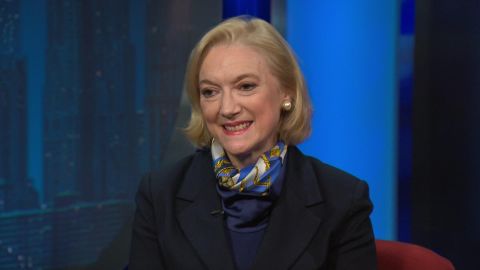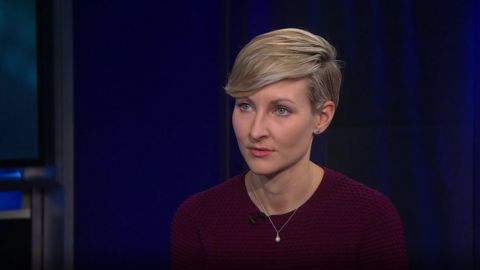Read Transcript EXPAND
CHRISTIANE AMANPOUR: How do you equate the things that you’ve investigated and the individuals who have been killed with a war on the West?
HEIDI BLAKE, AUTHOR, “FROM RUSSIA WITH BLOOD”: Well, my team and a few of us (ph) investigated a whole pattern of suspicious deaths in the United Kingdom which we were able to connect to Russia or to the Mafia groups that worked closely in tandem with Russian Security Services. But this book connects that to a much wider campaign of state-sponsored killing orchestrated by the Kremlin. And from the very first days of Vladimir Putin’s presidency, his opponents have died in bizarre and grizzly circumstances. They’ve been shot and blown up, hit by cars, pushed out of windows, died in apparent suicides. There are a whole trail of dead bodies leading back to the Kremlin. And what’s that part of is it’s a kind of form of statecraft in Russia to go after enemies of the Russian state, anybody who threatens the Kremlin’s power, anybody who knows too much, anybody who has campaigned against Putin’s absolute power in Russia is under threat. And that goes alongside the other ways in which Putin is trying to destabilize the institutions of alliances of the Western world order.
AMANPOUR: Obviously, Putin has given all sorts of hints, in any event. that those who cross him will be dealt with. But interesting to note how that ties into the attack on the West and why that is part of the war on the West.
BLAKE: Right. Well, I think, Vladimir Putin’s main goal is all about restoring Russian greatness in the world. And so, part of the way in which he does that is his assault on democratic institutions in the West, his attacks object attacks on the European Union and, you know, his attacks on NATO. His attempts to sow disunity and confusion across the West. His — you know, his deliberate attempts to destabilize western democracies. As you can see (INAUDIBLE) and meddling in the U.S. elections, in democracies across Europe as examples of that. And the kind of fake news factories and troll farms which sow disinformation and disunity in Western democracies. But as part of that, his concerted effort to go after those who oppose his government, those who had information at their disposal which could threaten to expose his deep links to organized crime, for example, anything which threatens his power in the world or Russian might in the world, you know, those people are systemically targeted. And that does two things, it not only removes enemies who might, you know, genuinely threaten Putin’s government, but it also sends a message to anyone in the world, wherever they are, whichever country they reside in that if you cross the Kremlin, if you cross Putin, if you attempt to work against the Kremlin, you’re not safe anywhere in the world, and that’s a powerful message.
About This Episode EXPAND
Heidi Blake joins Christiane Amanpour to discuss suspicious deaths connected to the Kremlin, and Dr. Rangan Chatterjee explains the causes of workplace stress. Plus, Carmen Bambach analyzes Leonardo Da Vinci’s groundbreaking work with Walter Isaacson.
LEARN MORE


